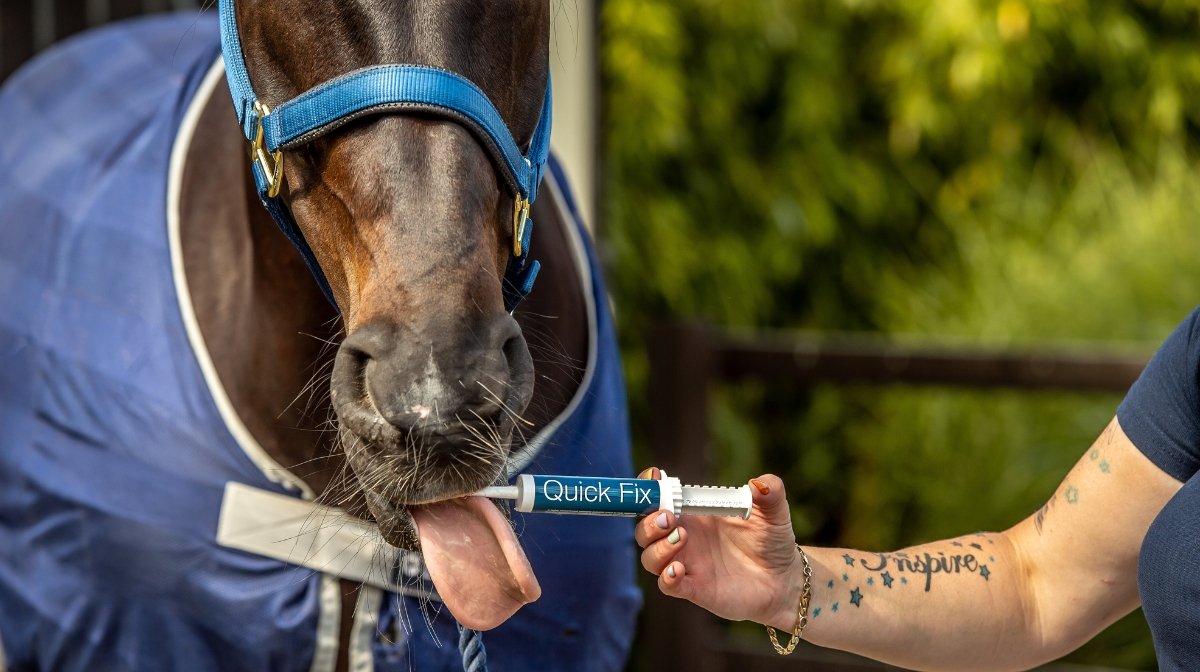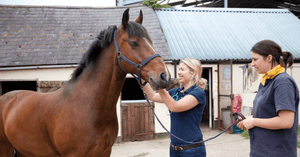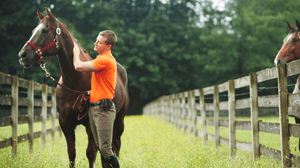
Proper worming is an essential part of horse healthcare. Ensuring the well-being of your horse and preventing further potential health issues is extremely important to any owner, but what do you need to know to protect your horse or pony?
What are worms?
Worms are internal parasites that can affect horses at any point in their life. Unfortunately, there isn’t just one type of worm that you need to look out for.
Types
Several internal parasites, including Small Strongyles, Large Strongyles, Roundworms and Tapeworms, can affect horses.
- Small Strongyles (Cyathostomins)
These encyst within the intestinal wall, requiring worming for effective treatment. The presence of these can lead to weight loss, colic, and diarrhoea.
- Large Strongyles
These can damage blood vessels and your horse’s intestinal wall, so timely intervention is important to prevent more serious health conditions.
- Roundworms (Ascarids)
Roundworms can cause stunted growth, colic, and respiratory issues. Treatment is essential for foals and youngstock as they are more susceptible.
- Tapeworms
These can occasionally cause intestinal problem such as colic so are worth being aware of. Specific attention is usually needed due to the potential for intestinal problems.
How to worm a horse
Broadly speaking, worming a horse requires us to administer medication that targets and removes the internal parasites.
Proper dosage Ensure you administer the correct dosage based on an accurate measurement of your horse's weight. Using too little may be ineffective, while using too much can lead to toxicity.
Administration methods Wormers are available in various forms, including paste, gel and granules. You should choose a form that suits your horse’s temperament and your preferences as well. Again, a medical professional will be able to advise on this.
Faecal egg counts A faecal egg count is a test that measures the number of parasite eggs in a horse's faeces, helping assess the need for you to consider worming. Your vet can perform these tests to determine if your horse has a high, moderate, or low number of parasites.
Body changes Monitor your horse's body condition regularly. Worm infestations can cause weight loss, so keep an eye out for significant changes in your horse’s overall condition.
Behavioural changes Be observant of changes in your horse's behaviour, like lethargy or differences in their appetite. These can be indicative of underlying health issues, including a worm burden.
After Worming Care
- Manage manure
Regularly remove manure from your paddocks to minimise the risk of worm transmission. Whilst poo picking can be a chore, it’s imperative in keeping your paddocks clean.
- Quarantine
Use a quarantine for new arrivals to prevent introducing parasites to your yard. The quarantine allows for observation and, if necessary, targeted treatment before integration with the rest of your horses.
- Gut health supplements can support gut health in horses in times of stress or discomfort by helping to maintain normal digestive function. Quick Fix paste can help your horse in these situations.
Developing a worming schedule
Just as important as how you treat your horse, is when you treat your horse. The best way to minimise the impact of worms is to develop a schedule that will enable you to fight parasites, at the optimum time. What do you need to develop one?
Consultation with a vet They can perform diagnostic test to detect the presence of worms, such as faecal egg counts, saliva tests and blood tests. They can also assess your horse's overall health and provide valuable information for creating a tailored plan.
Age and activity level Carefully consider both the age and activity level of your horse before making a worming schedule. For instance, young horses are more susceptible to certain types of parasites and may require more frequent worming.
Seasonal considerations Remember, parasite activity can vary with the seasons. You’ll need to adjust your worming schedule to account for peak periods of parasite infestation, typically in spring and autumn although are subject to change due to global climate change
Maintaining a healthy and worm-free environment for your horse requires a lot of maintenance and hard work. Strategic worming based on the relevant diagnosis, vigilant monitoring, and effective aftercare all play their part in your horse’s health. Work closely with your vet to create a tailored worming schedule and follow best practices when administering worm medication. Regular assessments and adjustments to your plan will help keep worms as far away from your yard as possible and keep your horse or pony happy.
Do you require further gut health supplements for your horse? Or potentially more information on gut health for horses in general? Head over to Protexin Equine Premium.









